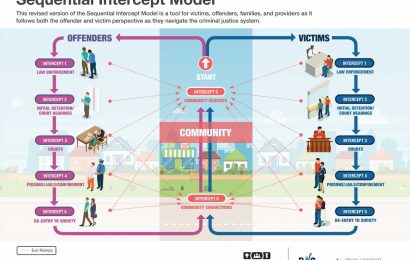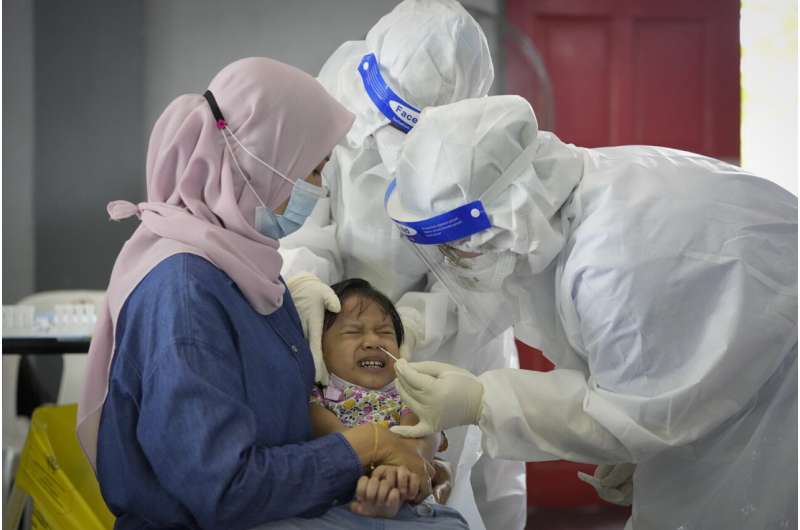
Malaysia has procured more vaccines and aims to accelerate inoculations starting next month, a Cabinet minister said Thursday, as the government struggles to contain a worsening coronavirus crisis.
Science Minister Khairy Jamaluddin said the government has bought an additional 12.8 million doses of the Pfizer vaccine, bringing the total to 44.8 million doses, enough to cover 70% of Malaysia’s population.
Over 11 million people, or about a third of the population, have registered for vaccinations but only 1.7 million have received at least one dose.
Khairy said the vaccines will be delivered over the next few months, allowing the government to increase inoculations to 150,000 a day starting in June.
Malaysia has also approved the Sinovac and AstraZeneca vaccines.
The health ministry on Thursday reported 7,857 new infections, a new record that pushed the country’s total confirmed cases to 541,224. It was the third straight day in which new cases soared above 7,000. Total deaths have spiked to 2,491.
The ministry earlier Thursday called for medical officers, dentists, nurses and technicians to volunteer to help overburdened health workers in the fight against the pandemic.
Health Director-General Noor Hisham Abdullah, who has warned of a further spike in cases, tweeted that volunteers are sorely needed nationwide.
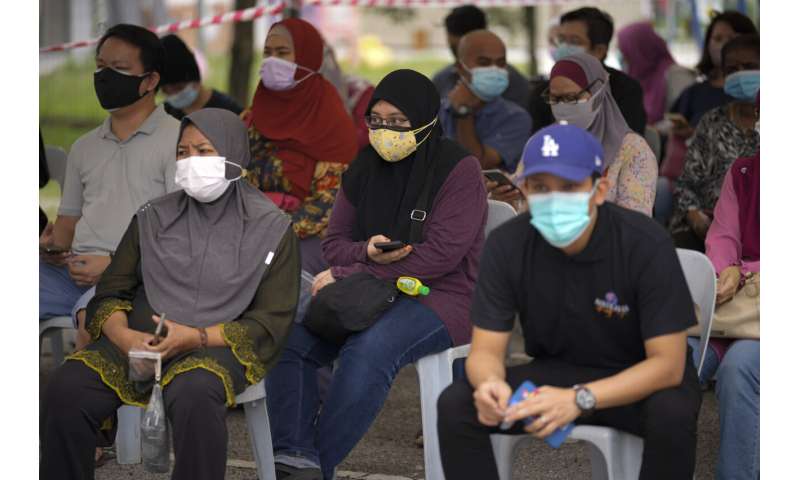
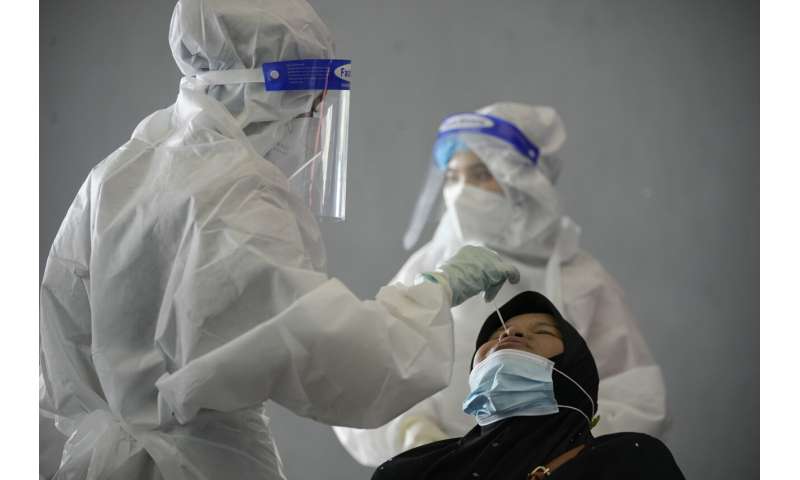
Malaysia’s daily cases have been on the rise since April and accelerated after the Muslim Eid festival despite a one-month near-lockdown until June 7. The surge, coupled with a rise in deaths, have strained the healthcare system.
A southern state ruler has echoed calls for a full lockdown that would halt nearly all economic activities. The government says this could lead to economic disaster and instead has tightened restrictions on movement.
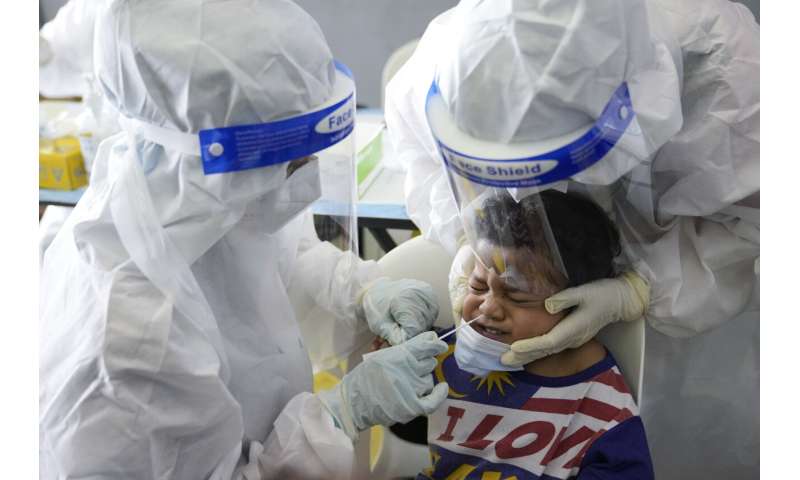
Thousands of people, including one of Malaysia’s most famous singers, have been fined for violating COVID-19 safety rules. Local media said singer Siti Nurhaliza Tarudin and her husband were fined 10,000 ringgit ($2,417) each for holding a religious ceremony last month for their baby.
Source: Read Full Article
